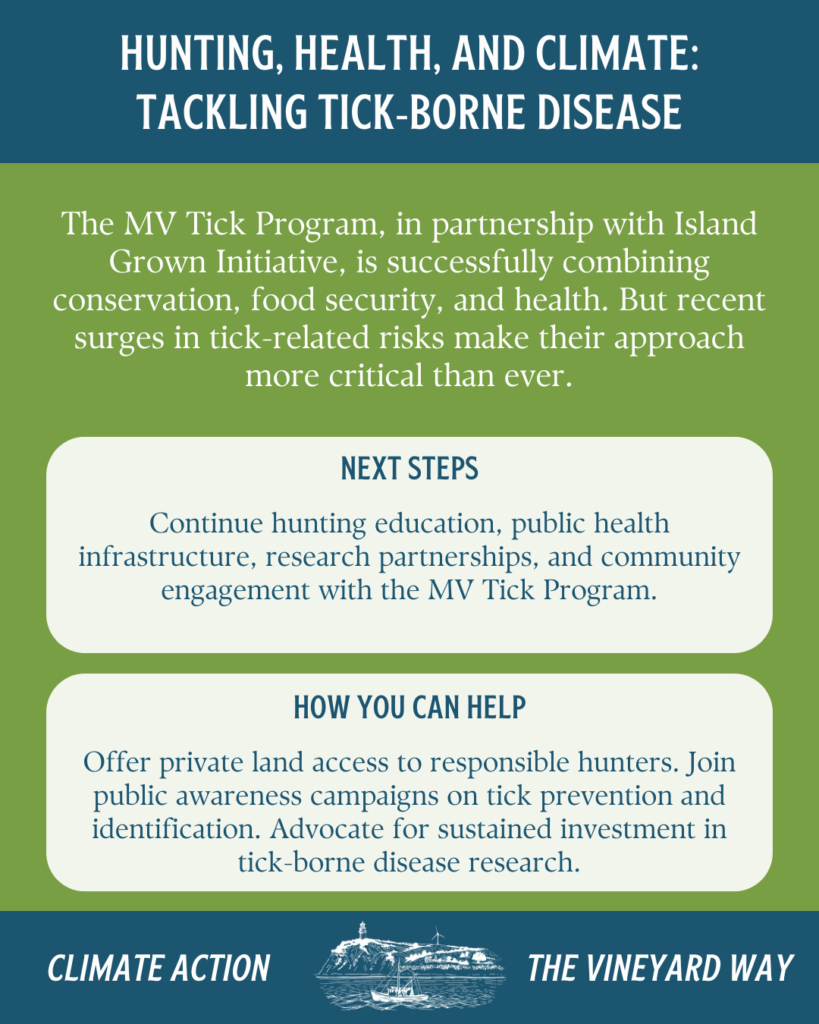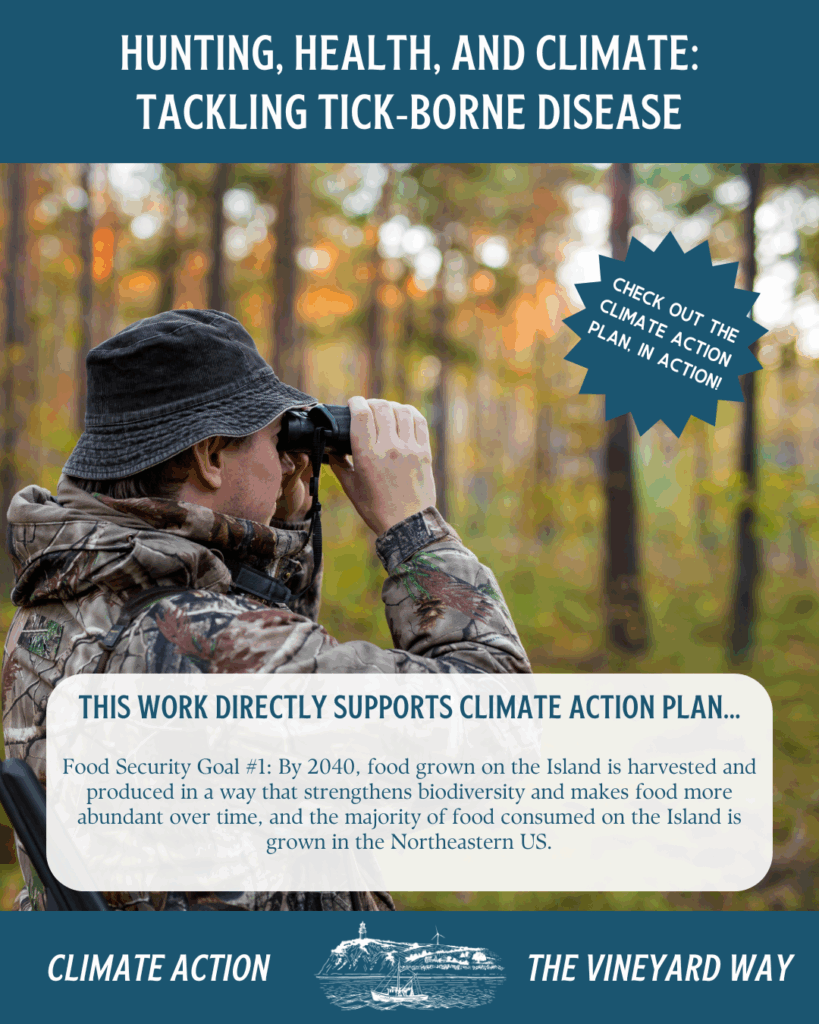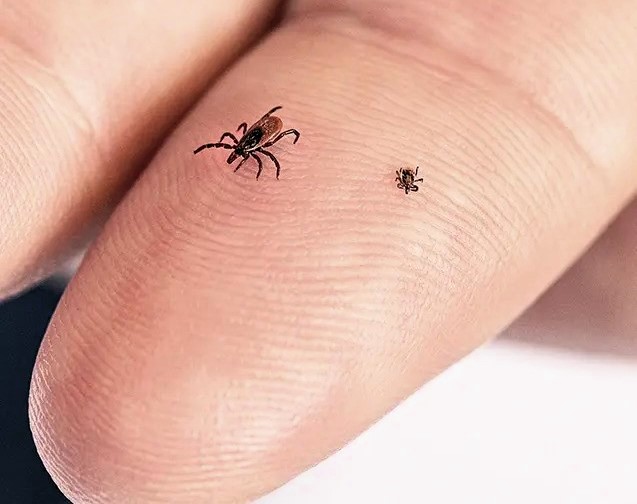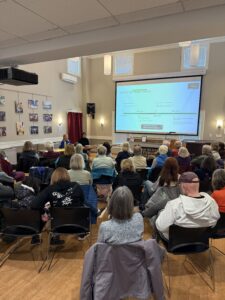On Martha’s Vineyard, public health, the environment, and food systems are deeply interconnected—and current events underscore how urgent integrated approaches have become. The MV Tick Program, in partnership with Island Grown Initiative, is successfully combining conservation, food security, and health. But recent surges in tick-related risks make their approach more critical than ever.
The Tick Threat Is Growing
This summer has seen a sharp rise in tick-related health concerns. Here on the island, emergency department visits tied to tick bites have significantly increased: from June 1 to July 5, 261 visits occurred in 2025, compared to 194 during the same period last year. Meanwhile, cases of alpha-gal syndrome—an allergy to red meat caused by lone star tick bites—have exploded, climbing from just 2 diagnoses in 2020 to 523 in 2024.
Moreover, the Northeast is experiencing a record-setting tick season. Data from the CDC and universities highlight elevated tick activity and related illnesses across the region.
Tragically, the Island recorded a rare and alarming health event: a one-month-old infant in West Tisbury was diagnosed with Powassan virus, only the second such case in two decades. This virus can be transmitted within 15 minutes of a tick bite, has no available cure or vaccine, and can cause serious neurological damage.
Community Solutions Anchored in Tradition and Innovation
These troubling developments reinforce the importance of the MV Tick Program’s hunting mentorship initiative, led by Patrick Roden-Reynolds, which seeks to recruit, retain, and reactivate hunters as a means of managing the deer population—one of the main hosts for ticks. By reducing deer density, the program helps limit tick habitats and indirectly lowers disease risk, while promoting venison as a sustainable, local protein.
Facilities like the community deer cooler at the Ag Hall and the venison donation program—which has contributed over 400 lbs of meat to neighbors in need—exemplify how hunting can promote both ecosystem balance and food security.
Science, Funding, and Cultural Context
Beyond fieldwork, scientific insights are informing better interventions. A recent Tufts study revealed that shrews—not mice—are the leading hosts for disease-carrying ticks on Martha’s Vineyard . This shifts our understanding of Lyme disease ecology and highlights new frontiers for research.
Yet, funding challenges threaten this progress. Earlier in 2025, federal grant cuts put Island disease monitoring efforts into jeopardy—though temporary court rulings have allowed work to continue for now.
The Vineyard Way in Action
This layered strategy—combining hunting education, public health infrastructure, research partnerships, and community engagement—reflects The Vineyard Way: practical, place-based resilience rooted in local stewardship.
Islanders can contribute in many ways:
- Take hunter safety courses and serve as mentors
- Offer private land access to responsible hunters
- Join public awareness campaigns on tick prevention and identification
- Advocate for sustained investment in tick-borne disease research
By linking climate adaptation, food security, and public health, we’re safeguarding both the ecological and cultural vitality of Martha’s Vineyard—that’s The Vineyard Way.







